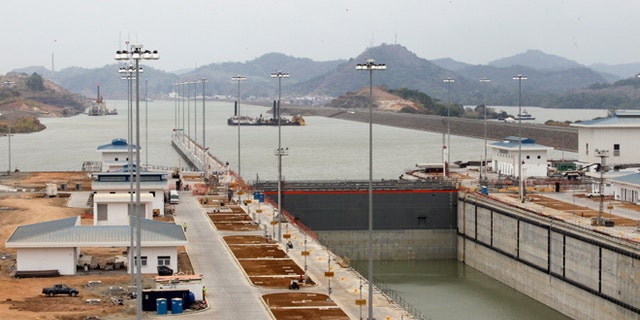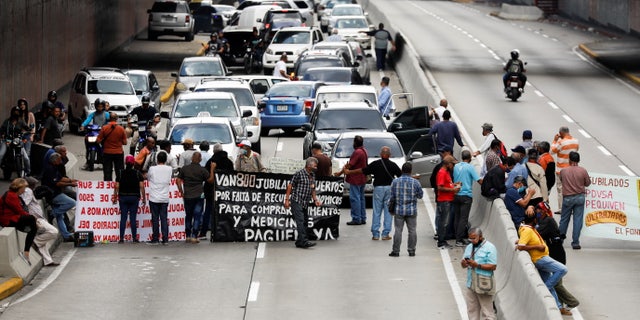NEWYou can now listen to Fox News articles!
The commander of U.S. Southern Command has raised concerns that the U.S. is not matching China’s grand strategy in Latin America.
“Flying along the Panama Canal and looking at all the state-owned enterprises from the PRC on each side of the Panama Canal, I worry about… they look like civilian companies or state-owned enterprises that could be used for dual use,” General Laura Richardson said during the second day of the Aspen Security Forum.
“[They] could be quickly changed over to a military capability if they needed that, too, so as I look at this, the investment that they make… I think we should be concerned.”
China’s global strategy involves broad investment in foreign markets, including the Middle East and Latin America. Even as Beijing struggles with domestic economic pressures and lagging recovery, it has maintained its foreign investment — largely guided by its Belt and Road Initiative.
Richardson, as commander of SOUTHCOM, oversees operations in the Caribbean, South and Central America. She criticized what she calls “South blindness,” where the U.S. shows much greater concern as to what happens in the East and West but not as much care for what happens in its own backyard.
“The SOUTHCOM area of responsibility… this is a very, very important region,” she explained. “I look at it like the 20-yard line. If you want to talk about sports and do a sports analogy, we are on the 20-yard line to the homeland and to the United States, and our competitors know that.”
U.S. Army Major General Laura J. Richardson, the first woman to serve as a deputy commander of a combat division, listens while seated behind Army Chief of Staff Gen. Mark Milley (L) during a Senate Armed Services Committee hearing on the implementation of the decision to open all ground combat units to women on Capitol Hill in Washington, February 2, 2016.
(Reuters/Kevin Lamarque)
She highlighted such vital factors as the fact that 60% of the world’s lithium supply sits in the region, along with light sweet crude, rare earth metals and 31% of the world’s freshwater.
“There are adversaries that are taking advantage of this region every single day,” Richardson said.
China is one such adversary that has continued to step up its interest and investment in the region. Brazil Foreign Minister Carlos Franca discussed with Fox News Digital his country’s international dynamics, noting that China ranks as Brazil’s top trading partner.
He explained that Brazil doesn’t see China “as a threat,” but instead as a superpower that has developed a “very mutually beneficial relationship” between the two nations.

A view of Panama Canal expansion project on Friday, March 18, 2016.
“I must tell you that who first helped Brazil with vaccines? It was China in the darkest hour of the pandemic. The first vaccines arrived were from China,” he said, adding that debate about “security concerns” among rival nations – such as the U.S. and China – is “much more common… in those countries than (in) countries like Brazil.”
But Richardson insists that the U.S. must work to improve its working relationships with regional partners as a way of limiting China’s advantages across Latin America.
“I say China is playing chess,” she argued. “They have a long-term view: They are setting the theater, which is what we use as a doctrinal term or a way I can say it in layman’s terms.”
The COVID-19 pandemic significantly weakened countries across South and Central America by driving 22 million people into poverty and making the region more vulnerable to China’s overtures and investment: Richardson said that 21 of 25 countries across the region have signed onto China’s Belt and Road Initiative.

Retired workers of Venezuela’s state-run oil company PDVSA protest outside the company’s headquarters demanding their pension funds, in Caracas, Venezuela, August 3, 2021.
(Reuters/Leonardo Fernandez Viloria)
“A metro station; a railway; a highway, telecommunications; a dam: Varying projects under the guise of economics,” she said. “It looks like there’s investment in this region, (and) these countries are starving for investment. They are starving for having and showing that they are delivering for their people.”
CLICK HERE TO GET THE FOX NEWS APP
“We need to strengthen our neighborhood, and we need to realize how resource-rich this neighborhood is and how close our competitors and our adversaries are in the region,” she said.